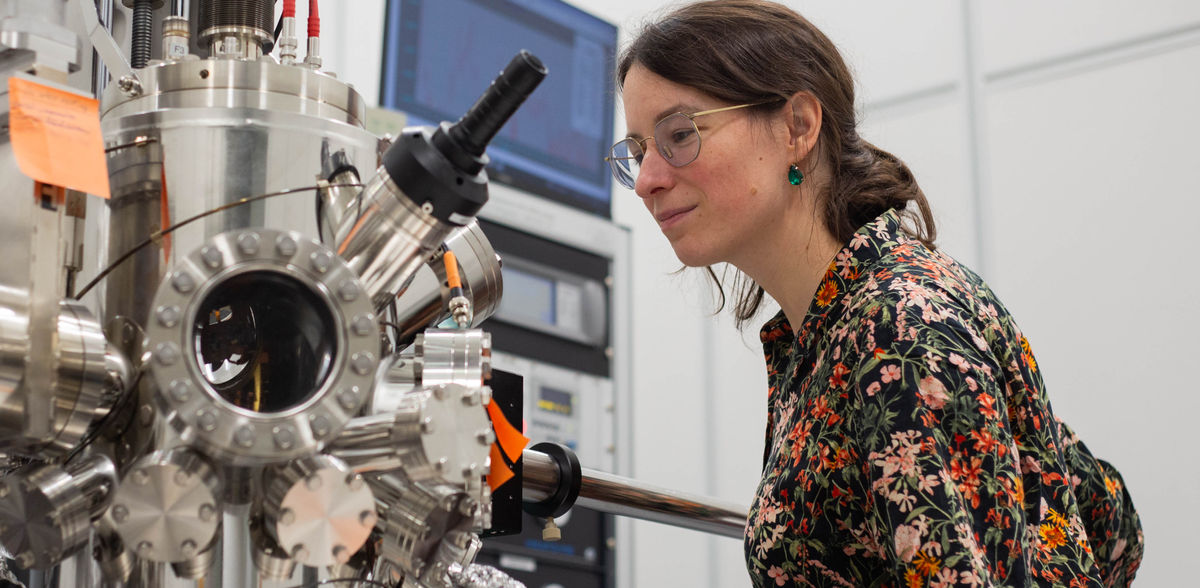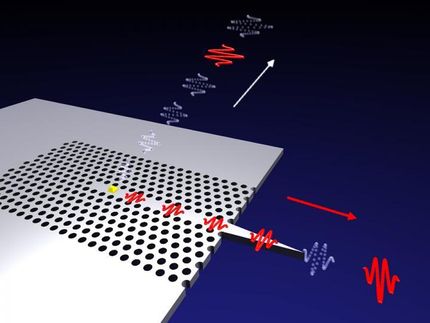Understanding and utilizing atomic quantum effects
Two new early career research groups bolster Stuttgart's quantum photonics research
Advertisement
The first Junior Research Groups for quantum photonics have started work at the Carl-Zeiss-Stiftung Center for Quantum Photonics (CZS Center QPhoton), where three universities have been conducting joint research into new quantum technologies since 2022. They are headed by physicist Dr. Laëtitia Farinacci and physicist Dr. Stephan Welte respectively and are based at the University of Stuttgart. Stuttgart's strong quantum research offers both groups ideal conditions.

Dr. Stephan Welte is head of the new CZS Junior Research Group for Quantum Photonics ‘Quantum Network Nodes’ at the University of Stuttgart.
Uli Regenscheit / Universität Stuttgart
"Stuttgart provides a highly stimulating environment for my research in quantum technologies," says Farinacci. "And thanks to the collaboration within QPhoton, I have access to a network that works on closely related research topics." Welte also appreciates the ideal environment, stating, "There is a wealth of theoretical and experimental expertise available for my work here. In addition, the other QPhoton sites in Ulm and Jena, as well as the Center for Integrated Quantum Science and Technology (IQST), located in Ulm and Stuttgart, represent an ideal research network."
Welte and Farinacci head the first two early career research groups at the Carl-Zeiss-Stiftung Center for Quantum Photonics (CZS Center QPhoton) in Stuttgart. At the CZS Center QPhoton, scientists from three universities have been conducting cross-location research on innovation topics in quantum technology since 2022. The center is funded by the foundation Carl-Zeiss-Stiftung with 12 million euros. QPhoton now also offers outstanding young scientists the opportunity to set up independent research groups. A total of four early career research groups are being funded with a budget of up to EUR 700,000 over five years, two of them in Stuttgart.
Dr. Stephan Welte: Researching quantum networks
The goal of Stephan Welte's CZS Junior Research Group, which is based at the 5th Institute of Physics at the University of Stuttgart, is to set up an experiment for information transmission in a quantum network. Welte uses atoms as qubits for this purpose. Qubits are the smallest units of information on which the function of quantum computers and quantum networks is based. Using qubits, certain tasks can be calculated faster, and information can be transmitted securely without the risk of interception.
Welte and his team want to build a quantum computer in the laboratory that can preserve and distribute the quantum-specific properties of the atomic qubits. In the future, such individual nodes could be used to build a complete network, a quantum network. “I want to build a small quantum computer with a network interface in Stuttgart that can be connected to other quantum computers to form a quantum internet,” explains Welte.
The new experiment is a customized setup for the planned quantum network applications. Two doctoral positions are planned. “We will also be offering interesting projects for Bachelor's and Master's theses,” says the physicist. His aim is to be able to position and manipulate all atoms individually in a very controlled manner in a space between two highly reflective mirrors. The mirrors are only half a millimeter apart. “It is possible to control the atoms with laser light, with so-called optical tweezers - in a vacuum, at extremely low temperatures,” explains the physicist.
Dr. Laëtitia Farinacci: Researching magnetic qubits
Farinacci's early career research group investigates the magnetic properties of atoms - a topic she has been working on since her doctorate. “We capture images of an atom, for example on a surface,” explains Farinacci. “In order to understand the quantum nature of atoms, technology is now so advanced that it allows us to explore different ways to record atomic videos.” Fast, temporal changes in particular are extremely interesting for gaining a fundamentally better understanding of the dynamic magnetic behavior of materials on length scales of nanometers.
Such experiments are important because they can help, for example, to better understand qubits based on magnetic quantum effects in the future. This improved understanding could lead to better control of qubits compared to current capabilities, either by increasing the time during which these qubits keep their quantum properties or by controlling their quantum nature dynamically. This will pave the way for more powerful quantum computers.
Farinacci's CZS Junior Research Group is based with Prof. Sebastian Loth at the Institute for Functional Matter and Quantum Technologies (FMQ). “Our different fields of expertise complement each other perfectly,” says the physicist. There will be at least one doctoral position in the early career research group, and students can also write their Bachelor's or Master's theses at the institute.


























































